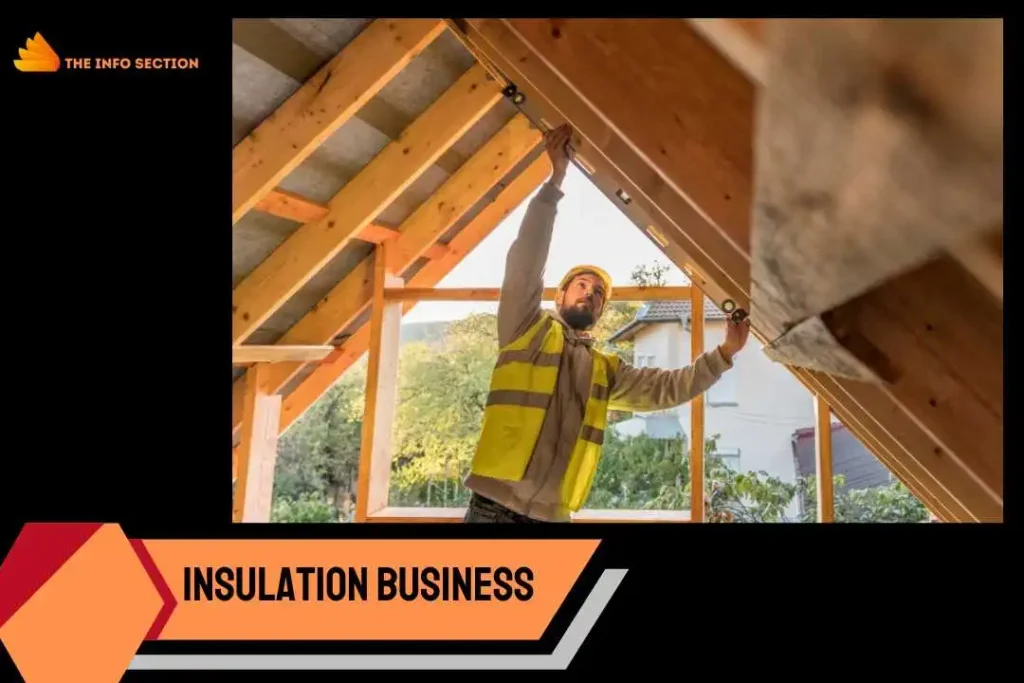With the increased attention being paid to sustainability and energy efficiency, it can be very profitable to start an insulating firm. We’ll take you through all the necessary procedures in this guide to successfully launch your insulation business. We can help you with everything from comprehending the state of the market to putting successful marketing plans into action. Well, let’s get started!
Understanding the Insulation Industry
Lowering greenhouse gases and improving the efficiency of energy are major goals of the insulation business sector. There is an increasing need for insulating solutions due to increased awareness of the environment. Market research projects that the requirement for thermal comfort and tough building rules will boost the global insulation market to billion-dollar sales by 2016
Types of Insulation Materials

There are many different kinds of insulation materials, and each has special qualities and advantages. Foam board, spray foam, cellulose, and fiberglass are examples of common varieties. It is essential that they understand the properties of every material in order to provide them with the best insulation choice.
Market Analysis and Trends
Before diving into the insulation business, conducting a thorough market analysis is crucial. Identify your target market, assess competitors, and analyze industry trends. Keep an eye on emerging technologies and regulatory changes that could impact the demand for insulation services.
Market Size and Growth Opportunities
The market for insulation business is growing steadily due to factors such as infrastructural expansion, growing urbanization, and the increased focus on energy-efficient buildings. In the years to come, there will likely be a sharp increase in demand for insulation services as governments throughout the world offer incentives for energy-saving measures.
Legal and Regulatory Considerations
In the insulation business industry, adhering to local laws and building rules is crucial. Learn about the local environmental rules, zoning laws, and permit requirements. Fines and legal ramifications may follow noncompliance with these regulations.
Certifications and Licensing for Insulation Business

Acquiring the required certificates and licenses shows your legitimacy and proficiency in the insulation sector. Verify that state and federal regulations are being followed by looking into certification programs provided by respectable organizations.
Business Planning and Operations
A successful insulation business starts with a concise business plan. Describe your goals, target market, pricing approach, and internal procedures. Take into account elements like the purchase of equipment, the need for employees, and project management software.
Financial Planning and Funding
Make a reasonable budget and estimate your initial expenditures for your insulation company. Investigate your choices for finance, including grants, investors, and small-business loans. You can overcome the difficulties of entrepreneurship and guarantee long-term sustainability by having a solid financial plan.
Marketing and Customer Acquisition
Increasing the size of your insulation business and drawing in customers require effective marketing. Create a thorough marketing plan incorporating online and offline platforms. To reach your target audience, make use of digital marketing strategies, including content production, social media marketing, and search engine optimization (SEO).
Building a Strong Online Presence
A good online presence has become vital for business success in the modern digital era. Make an attractive website that highlights your offerings, portfolio, and feedback from customers. Invest in SEO to raise the exposure of your website and draw natural search engine traffic.
Project Management and Quality Assurance
Providing top-notch insulation services is crucial to building a devoted clientele and getting referrals. Create efficient project management practices to guarantee that deadlines are met and quality standards are fulfilled. Conduct routine checks to confirm the efficacy and quality of insulating installations.
Customer Satisfaction and Feedback
Prioritize customer satisfaction by providing excellent service and addressing any concerns promptly. Encourage feedback from clients to identify areas for improvement and enhance your service offerings. Building strong relationships with customers can lead to repeat business and positive word-of-mouth referrals.
Scaling and Expansion
Look for options for scaling and expansion as your insulation business expands. Think about reaching out to specialized markets, branching out into new regions, or changing up the services you offer. To keep ahead of the competition, always assess industry trends and modify your business plan accordingly.
Investing in Innovation
Keep up with the latest breakthroughs and technological developments in the insulation sector. Accept innovative methods and materials that provide enhanced sustainability and performance. Putting money into innovation can offer your company a competitive advantage and establish you as an industry leader.
Do Contact with us for any query, services or business ideas.
FAQs (Frequently Asked Questions)
Q: How much does it cost to start an insulation business?
A firm that sells insulation may have different initial costs based on things like marketing, equipment, and license fees. You should budget several thousand dollars to begin your venture successfully, on average.
Q: Is insulation installation a DIY project?
A professional installation is advised for best results, while some homeowners may try do-it-yourself insulating projects. With their equipment and experience, insulation contractors can guarantee optimal energy efficiency and correct installation.
Q: How long does insulation installation take?
A number of factors, such as the size of the property, the kind of insulation, and the project’s complexity, affect the amount of time insulation installation requires. Installation can take a few days to several weeks on average.
Q: What are the benefits of insulation for homeowners?
Insulation offers numerous benefits for homeowners, including improved energy efficiency, reduced utility bills, enhanced comfort, and increased property value. Proper insulation can also help mitigate noise and moisture problems.
Q: How can I attract clients to my insulation business?
A: To attract potential customers to your insulation company, concentrate on developing a robust internet presence, connecting with professionals in the field, offering competitive pricing, and delivering top-notch customer service. Employ marketing techniques like keyword research, social media, and focused advertising to efficiently connect with your target market.
Q: Are there any environmental benefits to insulation?
It is true that insulation is essential for cutting greenhouse gas emissions and energy use. Insulation contributes to the mitigation of climate change and the promotion of environmental sustainability by increasing building energy efficiency.
Conclusion
It requires meticulous planning, market research, and strategic execution to launch an insulation company. You can start an income-producing endeavor in the insulation sector by using the procedures provided in this guide and industry best practices. Recall that in order to stay ahead of the competition, you should constantly innovate, stay up with market trends, and give priority to client fulfillment.



